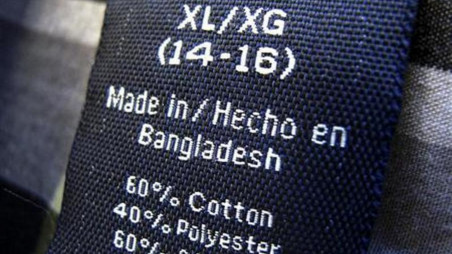Let us renew our pledge to ‘Made in Bangladesh’
During the 40 years journey of the industry, it has successfully faced many challenges and came back stronger every time

Covid-19 pandemic has caused disruption to global trade and economy. This may cause a global recession (5.2 percent) this year, which comes second to only the deep recession that occurred in 1945-46 at the end of the Second World War, which caused a staggering 13.8 percent global economy contraction.
The pandemic has wreaked havoc on the economy of Bangladesh as well. Over the last decade, the country's economy has been growing at a rate of around 7 percent per annum. As a result of the continuous growth, the country made signification strides in poverty reduction.
In recent times, the growth rate has been hovering around 7-8 percent per annum, which has propelled Bangladesh to be eligible to become a developing country by 2024. Now, the economic downturn caused by the Covid-19 pandemic is likely to put that aspiration on hold.
Almost all spheres of trade and business of the country have been affected by the contagion. The nationwide lockdown for about three months, as precaution against the coronavirus outbreak, has brought the country's economic activities to a standstill.
The local industry was hit hard by the lockdown. However, the small-medium enterprise (SME) sector took the biggest hit since the country's independence, as the sector depends on a short cash cycle, supply chain, and regular sales. SMEs are crucial to Bangladesh's economy, creating employment for 7.80 million people directly and providing livelihoods for 31.20 million as a whole.
The total manufacturing industry of the country faced a heavy jolt in this pandemic as well.
Though the lockdown has been relaxed and economic activities in the country restarted in full swing, the recovery of the local industries may take much longer than expected. In this situation, our renewed pledge to "Made in Bangladesh" products can turn around the local manufacturing industries within the shortest period of time.
Our strong commitment to local products can help the local industry weather the difficult times. Foreign brands and imported products largely dominate Bangladesh's domestic market. If consumers now make a promise to opt for "Made in Bangladesh" products over foreign brands and products, at least where options are available, it may work as a miracle in reviving our shattered economy.
This will not only strengthen the local industries but also generate new jobs and eventually, the country's economy will be stronger.
Meanwhile, the readymade garment industry, considered the lifeblood of the country's economy as it accounts for about 83 percent of Bangladesh's total export earnings, suffered huge order cancellations from buyers in the wake of the pandemic. fall in of export earnings as apparel export plummeted by 85.25, 62.06, 6.63, and 1.98 percent, respectively. Though in August. export witnessed a growth of 2.58 percent, the loss incurred by the country's apparel factories during the pandemic will take years to recover.
Moreover, the specter of global recession also looms large. Economic slowdown in Europe and USA is a concern for Bangladesh as these are the main markets for Bangladesh's apparel products. These two regions are expected to continue to see the economic slowdown at least for the next six months or more, and that may have far reaching implications on the RMG industry of Bangladesh, on its 3.6 million workers in particular, and over 40 million people, in general, who are directly or indirectly dependent on this sector.
We are grateful to the honorable Prime Minister Sheikh Hasina for announcing the stimulus packages to support the export-oriented industries. The Prime Minister, on March 25, declared a stimulus package of Tk50 billion. Later, on April 5, the PM further announced another stimulus package of Tk67.7 billion. Taken together, these stimulus packages account for about three percent of the country's GDP.
With these timely stimulus packages, the apparel manufacturers of the country faced the initial shocks of the pandemic. The apparel entrepreneurs of Bangladesh proved themselves resilient.
During the 40 years journey of the industry, it has successfully faced many challenges and came back stronger every time. So, I believe that our resilient entrepreneurs will also successfully withstand the trying times of the pandemic and even take the industry to the next level.
In this connection, I would request all the Bangladeshi diaspora and the non-residential Bangladeshis (NRBs) to stand behind the RMG industry during this difficult time by buying "Made in Bangladesh" clothes.
If the 7.5 million Bangladeshis living abroad renew their pledge to "Made in Bangladesh", it will definitely give a great push to our apparel export and act as a catalyst to make "Made in Bangladesh" products more popular in the Western world.
Faruque Hassan, Managing Director of Giant Group, is the Immediate Past Senior Vice President of Bangladesh Garment Manufacturers and Exporters Association (BGMEA). He is also the Honorary Consul General of Greece in Bangladesh.



 Keep updated, follow The Business Standard's Google news channel
Keep updated, follow The Business Standard's Google news channel
















